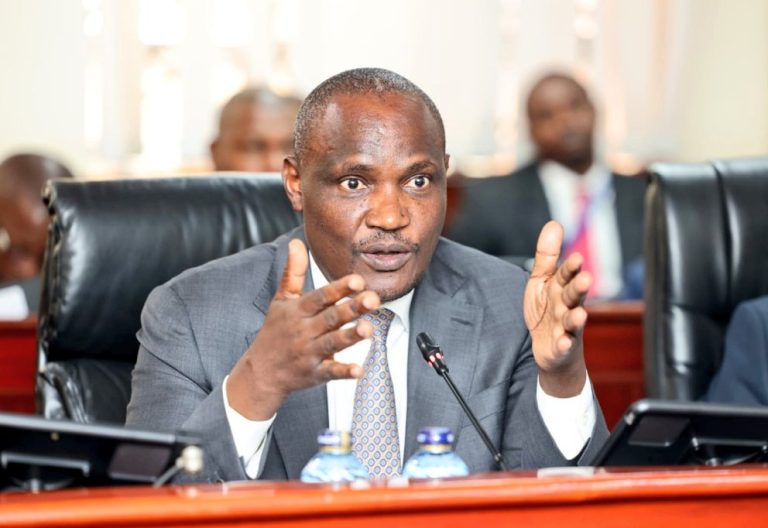The National Treasury has unveiled a plan to clear long-delayed retirement benefits owed to former Kenya Railways employees, offering relief to thousands of pensioners who have been awaiting their dues.
Appearing before the National Assembly’s Labour and Social Welfare Committee on Wednesday, August 20, Treasury Cabinet Secretary John Mbadi explained that the government had structured a framework to revive the Kenya Railways Staff Retirement Benefits Scheme (KRSRBS). He noted that the scheme had struggled to pay retirees because it operated on a non-contributory model, relying solely on investments rather than member or employer contributions.
“From the onset, the Kenya Railways staff benefits scheme has operated on a non-contributory basis. No monetary contributions are made to the scheme by members or sponsors,” Mbadi told lawmakers.
To address the liquidity crisis, Mbadi revealed that the state was capitalising on land assets held by the scheme. In particular, the Affordable Housing Board has expressed formal interest in acquiring about 141 acres of land in Makongeni, Nairobi, which belongs to the retirement scheme.
“The intended use of this land is for the development of residential housing units. This transaction presents a strategic opportunity for the scheme to unlock significant value from one of its largest and most strategically located land assets,” Mbadi said.
He added that once the sale is finalised, the proceeds will strengthen the scheme’s liquidity, ensuring consistent and timely pension disbursements to former employees.
At the same sitting, the Treasury CS also addressed concerns over a Ksh200,000 honorarium previously proposed for former councillors who served less than 20 years in government. He explained that the one-off payment was not feasible due to a lack of legal backing, proposing instead that the 328 affected ex-councillors be included in the Inua Jamii programme.
If approved, the former councillors will receive Ksh2,000 monthly stipends under the social protection scheme, which currently caters to vulnerable groups such as the elderly, orphans, and persons with disabilities.
The committee is expected to deliberate on Mbadi’s proposals before issuing its recommendations to Parliament.

